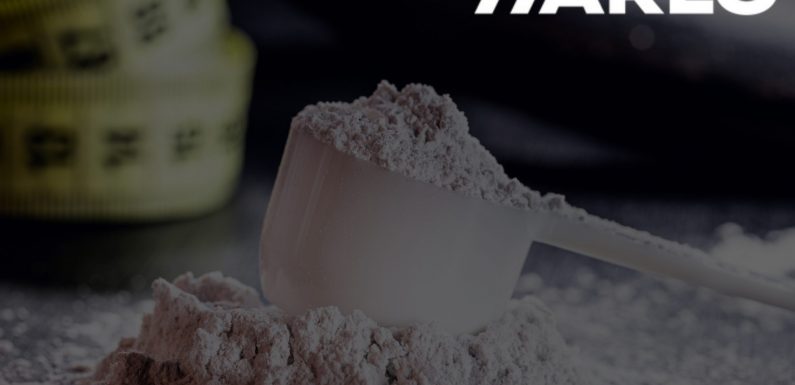
Recovery after a workout is crucial, yet often overlooked. While focusing on exercise routines is important, post-workout nutrition plays a key role in muscle recovery and growth. Consuming the right nutrients within the post-exercise window can enhance muscle protein synthesis, leading to repair and growth. Replenishing depleted glycogen stores is vital for energy and recovery, especially for endurance athletes.
Additionally, post-workout nutrition reduces soreness, inflammation, and damage, accelerating the recovery process. Understanding the significance of post-workout nutrition is essential for maximizing efforts in the gym and achieving fitness goals effectively. Fueling the body with the right nutrients at the right time optimizes muscle recovery and performance.
1. Protein Shakes
Protein shakes have gained popularity among fitness enthusiasts and athletes for their benefits in muscle repair and growth. These convenient and easily digestible shakes provide the body with a quick and effective source of protein, which is vital for repairing and building muscle tissue.
One of the main benefits of protein shakes is their ability to aid in muscle repair. After an intense workout, the muscles undergo microscopic damage. Protein shakes deliver amino acids, the building blocks of protein, quickly to the muscles, allowing them to repair and recover faster. This leads to improved muscle strength and reduced muscle soreness.
Protein shakes are also essential for muscle growth. When combined with regular resistance training, protein shakes provide the body with the necessary protein to support muscle hypertrophy. Consuming protein shakes post-workout helps to stimulate muscle protein synthesis, promoting muscle growth over time.
The recommended dosage of protein in post-workout shakes varies depending on an individual’s fitness goals and body weight. As a general guideline, consuming 20-30 grams of high-quality protein within 30 minutes to an hour after exercise is recommended for optimal muscle repair and growth.
Additionally, there are various types of protein powders available on the market. Whey protein, derived from milk, is the most popular and widely available option. It is quickly absorbed by the body and rich in essential amino acids. Casein protein, also derived from milk, is a slower-digesting protein, making it ideal for sustained muscle protein synthesis. Other options include soy protein, pea protein, and hemp protein, which are suitable for individuals with dietary restrictions or allergies.
2. Tart Cherry Juice
Tart cherry juice has gained popularity not only for its delicious taste, but also for its potential health benefits, specifically its anti-inflammatory properties. Studies have shown that tart cherry juice contains high levels of anthocyanins, which are natural compounds with powerful anti-inflammatory effects. These compounds have been found to reduce inflammation and oxidative stress in the body, making tart cherry juice a promising natural remedy for managing and preventing chronic inflammation and related diseases.
In addition, tart cherry juice has been found to be effective in reducing exercise-induced muscle damage. Research has indicated that consuming tart cherry juice before and after intense exercise can significantly reduce muscle soreness and improve recovery time. This is attributed to the high concentration of antioxidants in the juice, which help to reduce inflammation and promote cellular repair and regeneration.
Incorporating tart cherry juice into your post-workout routine is simple. It can be consumed as a refreshing beverage or added to a smoothie. It is recommended to drink around 8 to 12 ounces of tart cherry juice within 30 minutes after completing your workout. This allows the antioxidants and anti-inflammatory compounds to work their magic, aiding in muscle recovery and reducing inflammation in the body.
3. Sports Drinks
Sports drinks play a crucial role in replenishing glycogen stores and electrolytes after a strenuous workout or intense physical activity. During exercise, the body uses glycogen as a primary fuel source, which gets depleted over time. Consuming sports drinks helps replenish glycogen stores, providing the necessary energy for optimal performance in subsequent workouts or prolonged physical activities.
Moreover, sports drinks contain electrolytes such as sodium, potassium, and magnesium, which are lost through sweat during exercise. These electrolytes help maintain proper hydration, muscle function, and prevent muscle cramps. Optimal electrolyte balance is vital for overall body functioning and athletic performance.
When comparing homemade and commercial sports drinks, it is important to consider the composition and effectiveness. Homemade sports drinks often consist of water, sugar, salt, and citrus juices. While they can be cost-effective and customizable, their electrolyte content, such as sodium and potassium, may not be as precisely balanced as in commercial options. Commercial sports drinks, on the other hand, undergo rigorous testing, ensuring the appropriate blend of carbohydrates, electrolytes, and hydration. They are readily available and designed considering optimal nutritional needs for athletes and active individuals.
The best time to consume sports drinks is immediately after a demanding workout. Consuming sports drinks within 30 minutes of exercise helps replenish glycogen stores more efficiently and restore electrolyte balance. This window of time is commonly referred to as the “glycogen window.” By taking advantage of this window, athletes can maximize their recovery and reduce the risk of muscle fatigue and soreness. However, it is essential to consider individual requirements and consult with a sports nutritionist or healthcare professional for specific recommendations based on one’s goals and exercise routine.
4. Watermelon Juice
Watermelon juice is not only a delicious and refreshing summer beverage, but it also provides various health benefits, especially for post-workout recovery. This natural drink is a rich source of the amino acid citrulline, which is known to improve blood flow.
One of the main benefits of watermelon juice for reducing muscle soreness and fatigue is its high water content. Strenuous workouts often lead to dehydration, and watermelon juice can help replenish the lost fluids due to its hydrating properties. Additionally, watermelon juice contains essential electrolytes, such as potassium, which can aid in muscle recovery and prevent cramps.
Making watermelon juice at home is quick and easy. First, gather fresh and ripe watermelon. Cut the watermelon into small pieces, removing the rind and seeds. Place the pieces into a blender or juicer and blend until smooth. If desired, you can strain the juice to remove any pulp. Serve it chilled and enjoy the natural sweetness and refreshing taste.
To enhance the post-workout recovery benefits, you can add a squeeze of lemon juice or a sprinkle of sea salt to the watermelon juice. This will further replenish electrolytes and aid in rehydration after an intense workout.
5. Chocolate Milk
Chocolate milk has gained popularity as a post-workout recovery drink due to its optimal ratio of carbohydrates to protein. For an effective recovery, it is recommended to consume a ratio of 3:1 or 4:1 of carbohydrates to protein. Chocolate milk typically provides this ratio, making it an excellent choice to replenish glycogen stores and repair muscles after intense exercise.
Replenishing glycogen stores is crucial for athletes as it ensures a steady energy supply for future workouts or competitions. The carbohydrates in chocolate milk, mainly in the form of lactose, are quickly digested and absorbed by the body, leading to a rapid replenishment of glycogen stores. This enables athletes to recover faster and perform at their best in subsequent training sessions or events.
Moreover, the protein content in chocolate milk aids in muscle repair and growth. The protein helps to repair any micro-tears that occur in the muscle fibers during exercise, leading to muscle recovery and adaptation. By consuming chocolate milk, athletes can effectively promote muscle repair and optimize their recovery process.
When compared to other fitness recovery drinks, chocolate milk offers several advantages. Firstly, it is an affordable option that is readily available in most grocery stores, making it convenient for athletes. Additionally, chocolate milk provides a good source of vitamins and minerals, including calcium, which is essential for maintaining healthy bones.

Conclusion
Overall, choosing the right fitness recovery drink is crucial for muscle recovery and growth. Protein shakes are an excellent choice for muscle repair, while tart cherry juice offers anti-inflammatory properties. Sports drinks can help replenish glycogen stores and electrolytes, watermelon juice provides amino acids for improved blood flow, and chocolate milk offers a good balance of carbohydrates and protein for optimal recovery. Experimenting with these different options can help you find the best fitness recovery drink that works for you and helps you achieve your fitness goals. Remember to stay hydrated and refuel your body with the nutrients it needs to recover and strengthen after a tough workout.

